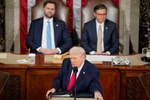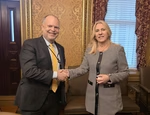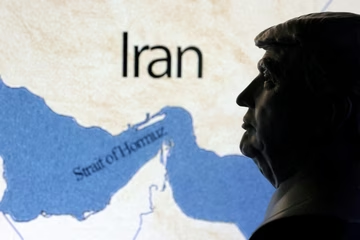John E. Smith: US Treasury sanctions can lead to economic isolation
US Treasury sanctions introduced against individuals, such as BiH Presidency member Milorad Dodik, mean that no US citizen, institution or company may cooperate or share any information with sanctioned persons or entities unless the US Government explicitly says so, former Office of Foreign Assets Control (OFAC) Director, John E. Smith, told N1.
Oglas
The US Department of the Treasury has expanded sanctions on Dodik, and introduced sanctions on the private media outlet Alternativna TV in early January.
“So what the sanctions generally mean is that I, as an American, no American company, no American individual or entity can deal with any individual or entity that’s been placed on the sanctions list. It's against the law for anyone to do so,” Smith said.
He explained that this can have wide-ranging implications due to the broad effects of US companies and the US Dollar around the world. It also means that non-US citizens “can’t use US-origin goods in any matter that may relate to sanctioned parties.”
He explained that companies around the world usually try to play it safe and try to avoid dealing with sanctioned parties because of the risk of enforcement from the United States.
This means that US officials or companies can not deal with Dodik in any way “unless the Government has explicitly said that it’s OK,” he added.
The US can technically also introduce sanctions against entities such as governments and parliaments, he said, but explained that generally, it would only sanction “those leaders in the parliament or elsewhere that they consider to be destructive forces, the ones who are undermining US national security and foreign policy objectives.”
More about how US sanctions work and what consequences they may lead to can be heard in the full interview linked above.
Kakvo je tvoje mišljenje o ovome?
Učestvuj u diskusiji ili pročitaj komentare
Oglas
Kakvo je tvoje mišljenje o ovome?
Učestvuj u diskusiji ili pročitaj komentare
Oglas
NAJČITANIJE
Oglas
Oglas
Najnovije
Oglas
Oglas





 Srbija
Srbija
 Hrvatska
Hrvatska
 Slovenija
Slovenija



























































